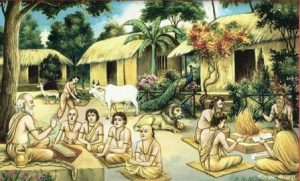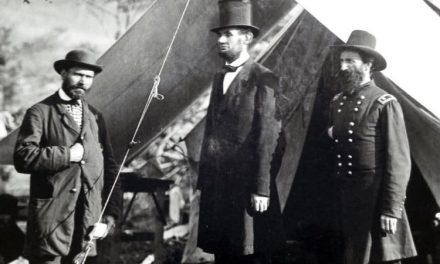
To power your management quotient the author would like to help you with a few practices which he had found very helpful in his work.
- Don’t boast to your staff about your credentials. They may hear you quietly, but talk jokingly about you behind your back.
- Never feel bad or reticent to share your official problems with your staff.
- Remove the fear of reprisal from their minds. But, make them realize they are accountable.
- At the same time tell them you are there to support and guide them if they make mistakes in the process of being accountable. Encourage failure as Google India does with its staff.
- At the end of the year, get your appraisal done by the staff.
- Discuss and finalize a plan of action and then hand over its evaluation to them.
- Tell them this is what we are expected to do. I’m accountable to you. All the support staff are accountable to you but you have to get it done.
- Tell them we can’t be complacent like the tortoise. We have to be running all the time. Otherwise, the person running at the back will overtake us. Its like a F1 motor race or a 5000 metre marathon race where you can’t afford to slacken your pace even for a second.
- Welcome on your staff well-rounded and adaptable ones than those who may be experts but can’t mesh with a team
- Give a patient hearing to the suggestion even of a peon. It may give you a new insight – who knows!
- The author has found that the best way to keep politics out is to provide your staff security and freedom to perform with no fear of failure
- The author had followed the 10 point value system adopted by makemytrip.com:

- Accountability
- Integrity
- Team work
- Respect for people
- Enjoyment at work
- Excellence
- Customer focus
- Staff empowerment
- Innovation
- Be sensitive to the needs and opinions of the staff.
- Institute an award for the “Teacher of the Quarter/Term”.
- Take the new staff to a hotel at the end of a month and ask them to share their experiences.
- If you are having a group of schools, get all new staff for a seminar on the “School Culture” where they will get a proper orientation. KVS organises a KVS Culture Orientation Programme”.
- The author used to get and give a complimentary ticket for a film, drama, concert, a visit to a resort, a good lunch /dinner, a trip to a pilgrim centre and as a reward for any achievement.
- Informal coffee/ lunch sessions with staff.
- Join in games with them in the evening.
- Organise a moonlight dinner for staff with families- all sharing what all have brought.
- Some items for staff families on the Sports and Annual day.
- Send invitation to staff families for school functions.
- Stories by staff of “ What I have done” during the staff meetings.
- Taking care of the special and difficult needs of staff families.
- Send greetings on staff Marriage Anniversaries.
- Staff to point out ( in staff meetings) their handicaps, difficulties or what has gone wrong in the school work.
- Developing a hierarchy – less culture in practical day to day work. But everyone should know the existence of a ‘Lakshman- Rekha’ for everyone.
- Fostering an open culture.
- Celebrations even for small achievements that make the staff feel special. In 1989, in the valedictory function or the Rajya Puraskar ( Scout and Guide) a peon of a KV was presented a gift for having prepared 10000 chapaties for 200 students for 5 days.
- The author used to ask the new staff to bring their spouses on the day of their joining so that they can see the work place and also meet the people with whom his/ her partner will work.
- The author used to ask teachers of separate cadres PRT, TGT, PGT, Specialist teachers, Office staff to have meetings of their group before the staff meeting on alternate months to discuss their own problems with one of them chairing the session. The Principal ( author) would go round and join each group for some time.
- In KV HVF Avadi, the author tried a multi- rater or 360 degree appraisal by which a leader is assessed by the staff and students.
- Treat the staff fairly well, irrespective of their cultural upbringing/ social status so that every person gets an equal opportunity to show his / her potential.
- Make every staff member feel that the best in him is brought out.
- If you have a chain of schools, you can institute “School of Excellence Award” annually.
~~~~~
CHAPTER XXXVII – INVOLVE COMMUNITY IN SCHOOL DEVELOPMENT

One of the B. Ed students of the author was appointed as Headmaster of a new private school in his home town. The author advised him:-
“ Your M. Q. must be an omnibus thing encompassing all the stake holders in your place. You can’t afford to let anyone or any group to feel alienated or left out or ignored. They can throw thorns on your path. Involve the whole community fully in setting up the school. Find out how each section can contribute by making them partners in the establishment of the school. You are giving them ownership. Make the Panchayat President , Local Councillor, MLA, MP and President of the Mahila Samaj, an important member of the School Committee. Use the locally available material as that would boost the local economy. Enlist local donations for building up the infrastructure. Put the donor’s name slab in front of the classroom. Put up a Donors Board at the entrance of the school.
All these will take you closer to the community. The net result will be,
The School belongs to the Community.
The Community belongs to the School.
~~~~~
VOLUME 2 – CREATIVE HOMEWORK 1

With the speedy advance of the electronic age and the consequent wave of consumerism, people are losing sight of their cultural roots and ethical standards. There is an urgent need for cultural re-engineering and making especially our students aware of their cultural heritage and what a strong moral basis, ethical foundation education had in the early days of our culture.
When the author was the Principal of a KV, the Chairman of the School Management Committee, requested the author to organise a function highlighting this aspect of education.
The author asked the students of class XI how they wanted their farewell function to be. The School Pupil Leader said, “ every year we usually have tea and then the “ passing the buck” game. Can you suggest any other type which will make us remember this day forever”.
The author told them about how the farewell function was held in the halycon days of “ Gurukula Vasam”. On completing twelve years of study they assembled the outgoing students for a Benediction Ceremony. A big mother lamp was lit by the ‘Gurupathni’ ( Guru’s wife) and each student lit an earthern lamp from it and placed them around the big lamp. The guru gave the benediction commands for leading honourable and useful life. This benediction forms part of the famous “Taittriyopanishad” and is called “Anusaashan”.
The students welcomed this idea and suggested that,
- The wife of the Chairman may be requested to light the Mother Lamp.
- Each student may be given a small brass lamp 3” height with the student’s name and year etched at the base of the lamp.
- A set of 6 books – “ Thus spake” series published by Sri RamaKrishna Math ( These were given as prizes to the subject toppers in each class in the six monthly tests.)
- A laminated copy of the ‘Anusashan’ be given to each with Sanskrit text and English translation.
- A distinguished educationist to be invited to give a special blessing to them.
The author was delighted to hear this and readily agreed to implement all their suggestions. He also said that he will request Sri. T. S. Avinashilingam, the former Director at Sri Ramakrishna Mission Vidyalaya, Coimbatore and his Mentor ( who was also the first Minister for Education, Tamilnadu, 1946- 49 and M. P. of Rajya Sabha for twelve years) and founder of two huge educational campuses- Sri Ramakrishna Mission Vidyalaya for boys and Sri Avinashilingam University for girls – KG to Ph.D., ) at Coimbatore, to deliver the special blessing.
The Chairman was extremely happy to hear all this and said it is a great blessing to get Sri Avinashilingamji to bless the children.
We are happy if schools can replicate this spiritual function and help their students to understand their great cultural and spiritual heritage.
Developing cultural awareness and consciousness is a vital part of educational management
TAITTRIYOPANISAD
Guru’s message delivered to his disciples at the time of leaving the “ Gurukulam”
There should be no error in your duties towards the Gods. Let your mother be a Goddess unto you. Let your father be a God unto you. Let your teacher be a God unto you. Let your guest be the God unto you. The works that are not blame worthy are to be resorted to, not the others. Only those actions that are commendable are to be followed by you, not the others.
You should, by offering seats, remove the fatigue of those who are more praiseworthy among us. An offering should be made with honour. The offering should not be made with dishonour. The offering should be made according to one’s prosperity. The offering should be made with modesty. The offering should be made with awe. The offering should be made in a friendly way.
Then, should you have any doubt with regard to duties or customs, you should behave in those matters just as wise people do, who may happen to be there and who are able deliberators, who are adepts in those duties and customs, who are not directed by others, who are not cruel and who deserve merit. This is the injunction. This is the instruction. This is the secret of the Vedas. This is divine behest. ( All this ) is to be done thus. And ( all this ) must be done thus.
CREATIVE HOMEWORK – 2
Projects or assignments are not to be based on the text book or require recall from memory. They should stimulate curiosity, make the students go to the library, read books and magazines, meet and interview people, visit organisations and gather related information from different sources, collate them, assess, synthesise and make a meaningful report.
The projects given below will ignite, trigger and stimulate the minds of students towards engaging themselves in a purposeful intellectual endeavour.
Whenever the author went to any class as a substitute teacher, he used to put these questions to make the children think.
The author and the children learnt with each other and from each other. It was a wonderful and useful and happy co-learning.
1) There is a severe drought in Maharastra. People get water to drink only once in 3 days
BCCI wants 40 lakhs litres of water daily to water its cricket pitches its PUNE for the IPL matches.
For which do you think water should be made available? – Life or sport? Analyse.
2) In England and other European countries they preserve, protect and maintain their ancient forts and moments very well and attract many tourists.
In India we see our monuments in an apalling condition.
Do you think students can take initiative in this direction ? How?
Find out if there are any old, dilapidated, temples and monuments and see how with your friends you can restore them to their past glory.
See the serial – மண் பேசும் சரித்திரம் (Mann Pesum Sarithiram) – “ The Soil Speaks History”- In Vasanth TV every Saturday- 9- 9:30 P. M.
3) Find out the different ways in which animals, birds, reptiles and marine animals protect and defend themselves.
4) Imagine yourself to be a frog on the biology dissection table and express your feelings.
5) Bharatha and Vibhishana went in search of Rama.
Rama went in search of Guha and Sugriva
Do you find any reason and meaning in these two approaches.
6) It is said:
Live like Rama
Act like Krishna
Which way you would like to adopt? Why?
7) In all temples you will find that you have to fold your hands and worship before every God.
But, you will see Hanuman only greeting all with folded hands.
Do you see any meaning in this difference?
8) It is said that Arjuna and Lakshmana had conquered sleep.
Do you think you can conquer sleep and how?
9) Can you find out the liberties taken by the poets with language imagery, logic, themes.
10) Imagine yourself residing in the mind and heart of a locomotive and express your thoughts.
11) Delve deep and compare
– Ashoka, Harsha Kanishka
-Lord Buddha, Mahavira, Gurunanak, The Prophet,Lord Jesus
– Mahatma Gandhi, Nelson Mandela, Abraham Lincoln, Martin Lutherking
– Indira Gandhi, Margaret Thatcher, Sirimano Bandera Naicker, Sheikh Hadina
12) When you go for an excursion or a picnic with your parents what are all the things you would ask them to take?
13) What are the precautions you should take during the trip?
14) Prepare a list of tourist spots in your state which are not costly.
15) From Dhanuskhodi to Talai Mannar in Srilanka, it is said that Sri Rama built a bridge full of big stones that floated on the sea.
Even today people find stones at Dhanushkodi weighing 8 kg not sinking in water. How can this be explained?
16) Have you at any time been dissatisfied:-
a) With yourself
b) With your parents
c) With your relations
d) With your team
e) With your leader
f) With your teacher
g) With your Principal
Explain the reason for your dissatisfaction.
VOLUME II – REFERENCES
| TITLE | AUTHOR |
| 1. “Leadership – The Power of Emotional Intelligence” | Daniel Coleman Bantam Books (Pub.) |
| 2. “Why how we do anything means everything?” | Dou Sidman Wiley 7 Sons (Pub.) |
| 3. “Built of Values” | Ann Rhodes- Jessy Boss (Pub.) |
| 4. “Thirukkural” | Thiruvalluvar |
| 5. “Importance of Being Earnest” | Weber Shandwicks |
| 6. “Human Touch – Marketing” | Steve van Bellechen |
| 7. “Silence is not always Golden” | Nishantha Grosia “Business Mandate” MMA (Pub.) |
| 8. “How to help an elephant make a U-Turn” | G.K.Jayaraman – Rupa (Pub.) |
| 9. “Common Wisdom – For the Head” | Keneth Coleman |
| 10. “Power of Noticing” | Prof. May Bazerman |
| 11. “Zen mind- Beginner’s mind” | Shunru Suzuki |
| 12. “Five Myths that make you slow” | Jason Jennings |
| 13. “Common Cause” | Dennis Johnson & Venkatesh Kini |
| 14. “The Quest for Power” | Devdutt Patnaik – Corporate Dossier of Economic times |
| 15. “Modern management is Bureaucracy” | Gary Hamel |
| 16. “Art of Subtraction” | Prof. Ranjan Gulati (HBS) |
| 17. “Great leaders learn from their errors” | Jane Williams |
| 18. “The Gold Mine Effect – crack the secrets of high performance” | Rasmus Ankerson |
~~~~~
(Place your comment/view about the article below.)




